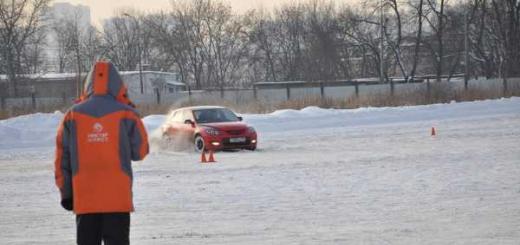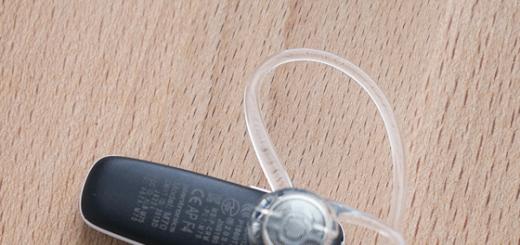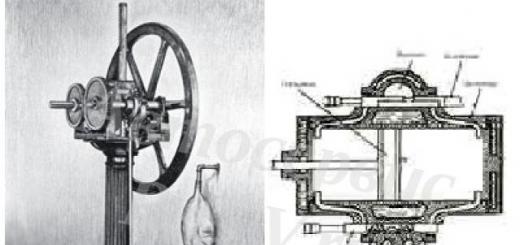I.
It must be remembered that most prefixes in Russian are unchangeable. That is, they are always written the same way. In any words.
For example:
about- : run around, stop, change your mind
y-: take away, run away, calm down
before- : survive, reach, delivery
on- : run, yard, look
pro-: roll, spacebar, view
great-: used in the meaning of "remote degree of relationship": great-grandmother, proto-language
on the- : attack, cover, press
behind- : close, prisoner, confuse
over- (must-): bite, inscription, overstrain
under- (under-): swim, suggest, wait
from- (otto-): give away, push back, open
ob-(ob-): get around, get around, get around
in- (in-): please, up, involve
you- : catch, exit, endure
pre- (pre-): preference, foreshadow, warn
re-: break, overflow, skew
s- (co-): move, move, bend(be careful, there is only the prefix s-, there is no prefix z-)
! Borrowed foreign prefixes are also unchanged:
Dez-: misinform
counter-: counter argument
trans-: transatlantic
post-: postmodernism
sub-: subculture
super-: superhero
pan-: pan-European
II.
There are several small groups of prefixes in Russian, which nevertheless change under certain conditions. In other words, their spelling depends on something. Consider these groups of prefixes.
1. Prefixes, the spelling of which depends on the deafness / voicedness of the subsequent consonant.
What does it mean?
If after a prefix from this group we see a voiced consonant, then at the end of the prefix we write -z, and if it is deaf, then, respectively, -s.
This includes the so-called prefixes on -з, -с, there are exactly six of them:
Without-/without- unemployed, immortal
times-/ras- scattered, disband
air-/sun- (air-/sun-) return, breathe, climb
from-/is- avoid, fear
bottom-/bottom- bring down, descend
through-/through- (through-/through-) excessive, excessive
2. Prefixes, the spelling of which depends on the lexical meaning.
These are prefixes pre-/at-.
To make right choice prefixes, you need to understand what meaning it brings to the word.
So, what values are typical for each prefix:
a) Meanings of the prefix pre:
1) Meaning the highest degree quality. Simply put, this value is equal to the meaning of the word very.
For example: beautiful, exaggerate, transcend, calm.
2) Meaning, close value prefixes re- (it should be understood that in such cases it is not always possible to replace the prefix with the prefix re-, the similarity of their meanings is important here)
For example: interrupt, criminal, teacher, transform, obstruction.
b) Prefix values for:
1) "approximation"
For example: come, arrive
2) "attachment"
For example: sew on, stick on
3) "non-action", that is, the incompleteness of the action, close to the meaning of "slightly"
For example: cover up, sit down,
4) "completed action", that is, brought to an end
For example: invent, prepare
5) "proximity to something", that is, "about"
For example: coastal, roadside
3. Prefixes, the spelling of which depends on the stress.
This group includes prefixes:
ras- / grew (raz- / ros-)
If you have not forgotten, then these prefixes also belong to the first group, therefore they have a spelling option - s/-s.
Without stress, the letter A is written in them, and under stress ... - there is no problem under stress, what we hear is what we write, as a rule, this is the letter O.
For example: painting, schedule, conversation, search.
III.
To correctly complete the tasks for spelling prefixes, you need to know two more rules:
1. On the choice of Y-I after prefixes in words with roots with the first letter I.
After a prefix ending in a consonant, Y is written in the root if this prefix is of Russian origin.
For example: unprincipled, find, play out, obYndevet (from the word hoarfrost)
Exceptions: Russian prefixes INTER- (inter-institutional, after Zh it is impossible Y!) and SVERH- (superintelligence) and the whole word COLLECT.
After a prefix of non-Russian origin, that is, borrowed (most often from Latin), the letter I is preserved in the root.
With the spelling of prefixes ending in Z-S, it is connected task B3 examination test.
It sounds like this: "From these sentences (numbers are indicated), write out the word in which the spelling of the prefix depends on the deafness / sonority of the consonant sound indicated by the subsequent letter."
First we repeat rule on the Diploma.RU . Here we perform training exercise.
Attention! Be sure to learn prefixes that end in Z-S:
without-, without-
re-, re-
vz-, sun-
from-, is-
down-, down-
times-, times-
rose-, rose-
through-, through-
through-, through-
Now let's look at what mistakes can be allowed when performing task B3:
Mistake 1. If there is a vowel or b after a prefix ending in Z-S, then neither the vowel nor the b have an effect on the spelling of this prefix, because З or С is heard in this case distinctly. An example of this is the words RELATED and NO-Nuclear.
Error 2. Do not confuse the prefix with part of the root or root. For example, in the word PLANT there is no prefix RAS-, it has the root -RAST-. Or in the word WHO, WHO is not a prefix, but a root.
Mistake 3. The spelling of the prefix C- in words does not depend on the voicedness or deafness of the consonant following it. For example, the same prefix C- is written in the words MAKE and JUMP, despite the fact that in the first word after the prefix there is a voiced consonant, and in the second - a deaf one.
Mistake 4. The prefix on Z-S can be overlooked if the word has two prefixes. For example, in the word UNCLAIMED, after the prefix NE- there is the prefix VOS-, the spelling of which depends on the deafness of the consonant following it.
To prevent these errors, try the following an easy task.
Find the odd one out in each group of words.
a) ugliness, loafer, illiteracy
b) talk, break, get angry
c) exclamation, fuss, age
d) bloodless, anxiety, rage
d) break up, find out, inflate
e) to bring down, to bring down, undersized
We carry out the task in GIA format:
In these sentences, find words in which the spelling of the prefix depends on the deafness / sonority of the consonant sound indicated by the subsequent letter.
Attention! In these sentences, there may be not one, but two or more words for the specified spelling.
a) The officer, inflamed with wine, the game and the laughter of his comrades, considered himself severely offended and, in a rage, snatching a copper chandelier from the table, let it in Silvio ...
b) Try to look at the lightning, when, having split the clouds as black as coal, it unbearably trembles with a whole flood of brilliance.
c) Returning to the drawing room, the three of them sat down: the old men remembered the old times and the anecdotes of their service, and Alexei pondered what role he should play in Liza's presence.
d) The centurion sat almost motionless in his room; the same hopeless sadness that he had met before on his face remained in him to this day.
e) Crossing himself and muttering something, a sad little man flew by, without a hat, with a completely insane face, a scratched bald head and completely wet trousers.
e) We sat down at the table; the host was extremely in spirit, and soon his gaiety became common; corks clapped every minute, glasses foamed and hissed incessantly, and with all possible zeal we wished the departing good journey and every good.
g) He broke off and again stared at me with the same bulging eyes and with the same long, convulsive, senselessly inquiring smile, spreading more and more.
h) All day the undertaker drove from Razgulay to the Nikitsky Gates and back; By evening he managed everything and went home on foot, dismissing his cab.
Answers to the task "In each group of words, find the extra"
a) ugliness
b) get angry
c) fuss (root -WHO-)
d) rage (root -BES-)
d) find out
e) undersized (root -BOTTOM-)
Answers to the task in the GIA format:
a) hot
b) Take a look, cutting
c) Returning, Remembered, Reflected
d) Hopeless
e) scratched
f) EXTREMELY, CONTINUOUSLY, ALL POSSIBLE
g) Senseless-..., Expanding
h) Walking around, a cabman
P.S.: Let me know how it went for you in the comments. Good luck!
Task Formulation:
From sentences 4-5, write out the word, the spelling of the prefix in which is determined by its meaning "spatial proximity":
(4) At the school site, work was in full swing. (5) The guys, humming, dug the beds.
Correct answer: at school (the prefix PRI- means ABOUT - near the school)
Other possible wordings:
From the sentences... write down the word(s) in which...
continuation options:
- the spelling of the prefix depends / does not depend on the deafness-voicedness of the subsequent consonant;
- the spelling of a consonant in a prefix depends on the deafness of the subsequent consonant;
- the spelling of the prefix depends on the voicedness of the subsequent consonant;
- the spelling of the prefix is determined by its value (a specific value of the prefix can be indicated);
- the spelling of the prefix depends on the stress.
What you need to know:
In Russian, there are 4 groups of prefixes in the writing of which difficulties may arise:
1) (they need to be remembered);
2) , the spelling of which depends on the subsequent consonant;
3) , the spelling of which depends on the stress;
4) , the spelling of which is determined by their meaning.
1. Unchangeable prefixes.
These prefixes in their spelling are unchanged, constant. They are always spelled like this! Be sure to remember these prefixes:
V- (VO-), TO-, FOR-, ON-, OVER-, UNDER, O-, OB- (OBO-), FROM- (OTO-), PO-, POD- (PODO-), S- (CO-), RE-, PRE-, PRO-.
EXAMPLE: on the write, under salt, on slip, on knock, from do, from give, before accept.
Prefixes З- are not present in Russian! In words h denmark, h health, h here, neither h gi (not visible) the letter Z is part of the root.
2. Prefixes on Z-, S-.
Their spelling is very simple: a prefix with the letter Z is written before the voiced consonants, with the letter C before the voiceless consonants. Be sure to remember these prefixes:
WITHOUT-/BES-, VZ-/VS-, WHO-/VOS-, FROM-/IS-, BOTTOM/NIS-, TIME-/RAS-, THROUGH-(THROUGH-)/THE-
EXAMPLE:RA C with watch,
RA W g stare,
AND W to eat,
AND C t again,
CRE Wm black,
RA FROMh rub,
IN C to arabic,
CHERE From h ur,
sNI C x positive
Case 1 To choose the correct letter -з- or -с- at the end of prefixes, it is necessary to distinguish voiced consonants from deaf ones.
All deaf consonants allow you to remember the phrase: F OK A, WANT TO EAT P O C ?
Voiced consonants allow you to remember the phrase: OH WE NEVER FORGET AND OTHERS!
EXAMPLE:
in prefixes of words RASh
convenient and RAS c
branch we will write - from-, because the first letters of the root - h- And - c- denote deaf consonants, and in the prefixes of words FROM
d
yerzhka and FROM m
ena we will write a letter - h-, since the first letters of the roots denote voiced consonants-
d- And - m-
Case 2 Remember that the spelling of the prefix FROM- in words does not depend on the voicedness or deafness of the consonant following it. The prefix C- refers to the group of invariable prefixes.
EXAMPLE:
in words FROM DO and FROM JUMP the same prefix C- is written, despite the fact that in the first word after the prefix there is a voiced consonant, and in the second - a deaf one.
Case 3 The prefix on Z-S- can be overlooked if the word has two prefixes.
EXAMPLE:
in the word NOT WOS REQUIRED after the prefix NE- there is a prefix VOS-, the spelling of which depends on the deafness of the subsequent consonant, while the spelling of the prefix NE- is not determined by this rule.
Case 4 Do not confuse words with prefixes in Z-S- with words whose root is consonant with these prefixes.
EXAMPLE:
1. prefix BES- (BESpokoit) and the root -BES- (Raging)
2. prefix BOTTOM- (LOW) and root -BOTTOM- (LOW)
3. prefix DIFFERENT- (Break) and root -DIFFERENT- (DIFFERENT), root -DIFFERENT- (DIFFERENCE)
4. prefix RAS- (ROUND) and root -RAST- (PLANT)
5. prefix ROZ- (ROZdal) and root -ROZ- (ROSE)
6. prefix ROS- (ROScherk) and root -ROS- (ROSisty), other roots (LUXURIOUS, ROSTOCH)
7. prefix WHO- (refrain) and root - WHO- (WHO)
3. Prefixes ROZ- (ROS-), RAZ- (RAS-), NE-, NI-
The spelling of vowels in these prefixes is determined by stress.
In the prefixes ROZ- (ROS-), RAZ- (RAS-), the letter is written without stress BUT, under stress - ABOUT.
EXAMPLE:
R but
write off - p ABOUT
sleep, r but
play - r ABOUT
prank, r but
zliv (rivers), r ABOUT
pouring drinks
The prefixes NOT and NI, found in negative and indefinite pronouns and adverbs, also depend on the stress. Under stress we write NOT, without stress - NO.
EXAMPLE:
n E when - n And when, n E who - n And who, n E what - n And what
4. Prefixes PRI-, PRE-
The rule for writing these prefixes is one of the most beloved by schoolchildren, and it is also very easy to remember. The spelling of the vowel in them depends on the meaning of the prefixes.
The prefix PRI- means:
1)
approximation, addition, addition: at drive, at glue
2)
being close to something (proximity): at maritime, at Oksky
3)
incompleteness of the action (the action was not completed to the end): at open, at to brake
These are the main meanings of the prefix pri-, but there are three more rarer meanings:
4)
end of action: at think
5)
action performed in someone's interests: at hide
6)
accompanying action:at
jump, at to speak at dance, at sing
The prefix PRE- means:
1)
close in meaning to the word "very": pre red (very beautiful)
2)
close in meaning to the prefix re-: pre step (cross the line), interrupt (interrupt)
However, the spelling of these prefixes is not always determined by the listed values!
Difficulties that may arise:
Case 1 The spelling of words that are similar in sound but different in meaning is:
give corresponding type - betray friend,
pretend a door - transform dream (to realize)
arrive in time - stay on vacation (to be)
proceed to work - transgress law,
coming visit - transient moment (non-constant),
despise enemy (hate) - despise orphan (shelter)
bow before talents (to admire) - bow down to the ground (lean)
vicissitudes fate - gatekeeper at the gate
limit(boundary) patience - aisle(outbuilding) at home
endure(live through) - get used to(get used to) the heat
Case 2 The spelling of some words with prefixes PRI-, PRE- should be remembered or determined by spelling dictionary. This includes, for example, obsolete words used in phraseological combinations stumble (us-tar.) - “stumble”, stumbling - “hindrance, difficulty”, stumbling block; to die (obsolete) - “to die”, arrange a doomsday.
Case 3 The spelling of borrowed words with pre-, pre- is fundamentally recommended to be determined by the spelling dictionary: prestige, president, price list, prefix, precedent; priority, privilege, claimaniye, private, primitive, etc.
Dar a su decoración al aire libre un toque de la naturaleza con una canisse pergola! Aquí hay 35 ideas interesantes para una agradable sombra durante los meses de verano.
La pérgola canisse, tales como los vendidos por la caña de África, es una forma eficaz y barata para crear un tono muy natural en la zona protegida por su pérgola.
pergola canisse y patio con zonas de sombra y piscina

Es fácil de en contrar en las tiendas, existe la canisse en varias versions. Algunos se venden desde 2.50 y 3 euros por metro cuadrado (por ejemplo: canisse de bambú partido o varilla paillon paja, bambú, centeno). Otros requieren una inversion algo mayor pero razonable; sus precios oscilan entre 8 y hasta 18 euros por metro cuadrado (en el oiser canisse o bambú toda deriva en particular).
terraza de la piscina hermosa con pergola canisse

Esta sombra natural tiene la ventaja de que le protege del sol durante los días más calurosos, mientras que deja en una agradable brisa. Además, se le da la oportunidad de entrar en su decoración exterior de un elemento de estilo a la decoración de las islas, lo que sugiere a la vez los días de fiesta.
Deco idea islas canisse con pergola para su patio

Contrariamente a lo que pudiera pensarse, la pérgola canisse no es menos duradero que otros productos similares que son artificiales. Algunos de sombreado en canisse tienen una vida útil similar a las de los productos de plástico. Pero a diferencia de éste, las cañas son objetos muy natural, fácil de reciclar y no contaminan el medio ambiente.
decoración de la cubierta de madera con pergola metálica y canisse naturales

Protección barato y natural, la pérgola canisse nos permite disfrutar de unas condiciones similares a las ofrecidas por una pérgola bioclimática. De hecho, el principio de funcionamiento de este último basado en el uso de listones que permiten que la brisa pase a través del techo de la pérgola. Esto aprovecha el aire frescom mientras que sigue estando protegido del sol.
idea luz para las cadenas de iluminación con pergola

Además, el canisse pergola se adapta fácilmente a una variedad de diferentes estructuras. pérgolas y cenadores de jardín de metal y madera modernos o de la vendimia, se combinan perfectamente para complementar nuestra hacia el exterior.
Canisse jardin cenador del hierro labrado

La pérgola de cañas, que actúa como el techo de follaje de estructuras al aire libre se sabe que tienen una historia antigua. Creemos que estos son los antiguos egipcios los que descubrieron esta manera para protegerse del sol.
decoración de estilo mediterráneo Exterior y canisse de piedra y madera pérgola

De hecho, canisse pérgola es una solución que sea más adecuado para zonas con clima seco y cálido. Hoy en día, cualidades estéticas y prácticas son muy populares en toda Europa. Por lo tanto, se utiliza incluso en las zonas más húmedas. Solo en estos casos, la acacia se utiliza durante los meses de verano; que permanece almacenado dentro de la casa durante las otras estaciones.
Atmósfera y canisse vacaciones terraza de la piscina para el bambú

El jardín glorieta o pérgola canisse le da un vistazo a la estructura y contribuye a la atmósfera de vacaciones del espacio al aire libre. Una terraza con dicha protección seducir a los amantes de la decoración natural y favorece materiales auténticos.
Paisajismo con la casa pergola canisse con piscina

típicas villas y casas de vacaciones al aire libre, cenador o pérgola a menudo Canisse adorna las cubiertas de la piscina. Y qué mejor manera de una superficie de espíritu de mar?
Canisse pergola natural para la decoración moderna

Economica, la acacia es, sin embargo no se limita a la modesta externa y pérgolas y cenadores de jardín improvisadas. Encuentra su lugar tanto en las terrazas de diseño moderno y en el campo con la decoración de DIY.
Cenador de jardín de madera con espíritu rustico zarzo

Ysi! Para terrazas y jardines decorados con un bambú o zarzo oisier no le falta de confort. Todos los elementos típicos de un jardín o zona de comedor al aire libre pueden existir perfectamente bajo un árbol con tal protección contra el sol.
moderna terraza con pergola canisse

cañas naturales son estacionalmente opciones de protección que almacena dentro de la casa durante los meses más fríos. En este sentido, tienen rango de las velas y pantallas solares. Tan duraderas, las cañas requieren menos esfuerzo de mantenimiento de estos elementos textiles.
Idea pergola de madera con canisse naturales

Por no hablar de que el zarzo suele ser lo suficientemente simple para ser instalado en una pérgola o cenador clásico. Y, si usted tiene una gran terraza en particular, puede ganar dos o más cañas. Una ventaja que no siempre es posible en el caso de pinturas y cortinas de sombra!
islas deco para una terraza de verano

Y si todos estos argumentos no fueron suficientes para convencer a usted para ofrecerle una pérgola canisse, la imagen inferior, sin duda lo hará!
Canisse pergola: Ideal para su cubierta de la piscina

esquina comida paisajismo exterior canisse cubierto

sombra natural y pergola idea canisse

Pequeña terraza con pergola canisse

islas deco y pergola con sombra natural

pergola canisse y caracter decorativo a la terraza



OGE - 2015. Task 4
Spelling prefixes.
Spelling prefixes
I . Immutable prefixes. The spelling of such prefixes should be memorized.
List immutable prefixes:
|
O: called out |
ON-: believe |
ON-: cover |
NECESSARY-: overstrain |
FROM-: give away |
|
W: left |
PRO-: grow |
FOR-: pick up |
UNDER-: thaw |
OTO-: push back |
|
BEFORE-: guess |
PRA-: great-grandmother |
OVER-: inscribe |
POD-: wait |
OB-: grind |
|
B-: involve |
YOU-: exit |
TRANS-: pour |
PRE-: Chairman |
OBO-: bypass |
|
VO-: involve |
C-: move |
CO-: bend over |
WARNING: beware |
Example task 4. From sentences 1-3, write out the word in which the spelling of the consonantin a prefix does not depend on the subsequent consonant sound?
Answer: entering
II . Prefixes on s - s.
Rule: In prefixes ending in Z and S, the spelling of the final consonant depends on the pronunciation: before voiceless consonants they pronounce [s] and write “s”, before voiced consonants they pronounce [z] and write “z”. For example: RAT-SAW (P - deaf), WAKE UP (B - voiced).
Be sure to learn prefixes that end in Z-S: without-, without-; voz-, voz-; vz-, sun-; from-, is-; bottom-, bottom-; times-, races-; rose-, rose-; through-, through-.
Mistakes that can be made when performing a task:
1. If after the prefix on Z-C there is a vowel or Ъ, then neither the vowel nor the Ъ affect the spelling of this prefix, because З or С is heard in this case distinctly. For example: DISCOVER and NO-Nuclear.
2. It is impossible to write out a word with a prefix on Z-S, after which there is a vowel (without error), since in this case the consonant at the end of the prefix is heard clearly.
3. The spelling of the prefix C- in words does not depend on the voicedness or deafness of the consonant following it. The prefix C- refers to the group of invariable prefixes. For example, the same prefix C- is written in the words MAKE and JUMP, despite the fact that in the first word after the prefix there is a voiced consonant, and in the second - a deaf one.
4. The prefix on Z-S can be overlooked if the word has two prefixes. For example, in the word UNCLAIMED, after the prefix NE- there is the prefix VOS-, the spelling of which depends on the deafness of the consonant following it.
5. Do not confuse words with prefixes in Z-S with words whose root is consonant with these prefixes.
For example:
prefix BES- (BESpokoit) and the root -BES- (RAGE)
prefix NIZ- (NIZ to throw) and root - NIZ- (LOW tall)
the prefix TIME- (Break) and the root -TIME- (Striking), the root-DIFFERENCE- (DIFFERENCE)
prefix RAS- (RATE) and root -RAST- (PLANT)
prefix ROZ- (ROZdal) and root -ROZ- (ROZOVY)
prefix ROS- (ROScherk) and root -ROS- (ROSisty), other roots (LUXURY, ROSTOCH)
prefix WHO- (refrain) and root -WHO- (WHO)
6. Do not confuse the following prefixes:
VZ- (Run) and VZO- (VZO get)
FROM- (Choose) and ISO- (FROM-bend)
ONE- (Break) and RAZO- (UNBEND)
7. Proper names can also have a prefix ending in Z-S. For example: Razgulay village.
Example task 4. From sentences 1-3, write out the word in which the spellingprefixes depends on the subsequent consonant.
- (1) Grandma, this is for you, - said Tanechka, entering the apartment, accompanied by two girls and one serious boy. (2) Blind Anna Fedotovna stood on the threshold of the kitchen, not seeing, but knowing for sure that the children were shyly huddled at the threshold.
- (3) Go into the room and tell what business you came for, - she said.
Answer: tell
III. Prefixes at- and pre-. Rule: the spelling of prefixes PRI- and PRE- depends on the value
Remember the words, the spelling of prefixes in which depends on the lexical meaning:
1. Despise the enemy (hate) - despise, despise the kitten (shelter)
2. Bow your head (lower down), knee (kneel down) - Bend a branch to the ground (closer, bend)
Attention! The word BOW is used in the expression BOW YOUR HEAD if it means "to take shelter; to find a place to live." In this case, the word HEAD should have a dependent word that answers the question where? where? to whom? For example: In old age, there is nowhere to lay your head.
3. Turn the dream into reality (make it come true) - Close the door (close loosely or quietly, carefully)
4. To endure inconvenience (endure) - To endure inconvenience (get used to)
5. Break the law (cross, break) - Start classes (start)
6. Stay at the station (be) - Arrive at the station (arrive)
7. Teach a lesson (advise) - crouch to the ground (snuggle)
8. Transient phenomenon (temporary, short-lived) - coming teacher (appearing for a while to perform duties)
9. Betray a friend (change, violate allegiance) - Give a presentation (make)
10. The successor of the scientist (continued) - listen to the RECEIVER (device for receiving signals)
11. Downplay merit (reduce a lot) - Reduce weight (reduce a little)
Example task 4. From sentences 2-6 write out the word in which the spellingprefixes determined by its meaning - "approximation".
(2) Blind Anna Fedotovna stood on the threshold of the kitchen, not seeing, but knowing for sure that the children were shyly huddled at the threshold.
- (3) Go into the room and tell what business you came for, - she said.
- (4) Your granddaughter Tanya said that your son was killed in the war and that he wrote letters to you. (5) And we took the initiative: "There are no unknown heroes." (6) And she also said that you were blinded by grief.
Answer: come
continuous, hyphen, separate spelling words of different parts of speech
|
Spelling of prepositions |
||
|
Slitno |
Apart |
Through a hyphen |
|
In view of (=because of) (but: keep in mind) Following (=behind) Towards (= to) Like (=like) Instead of (=for) Like (=like) About (=o) Above (=over) Near (=at) Behind (=behind) Opposite (= in front of, at) Against fate Due to (=because of) Subsequently (not a preposition, but an adverb, but worth remembering) |
During In continuation Finally Unlike Because of With the exception of In a relationship After To avoid For In terms of About In order (=for) From (=from) | |
|
Spelling unions |
|
|
Unions |
Other parts of speech |
|
1. Union to She even wantedto he stayed. |
1. Pronoun what and particle would(would can be relocated) To you advised me to read? |
|
2. Unions too, also Itoo (also) want to see (= me too). He reads, draws,as well as sings (= and sings) |
2. Pronoun then and adverb So with particle same(particle can be discarded Each passenger experiencedtoo feeling that he (= that) They disappeared from sightalso suddenly, as they appeared (= so) |
|
3. Unions but, then, moreover, moreover, because, therefore, therefore The performance went welland (besides) for the first time this year. The report is informative andbesides (moreover) interesting in form. |
3. Pronouns with prepositions for that, for that, for that, by that, from that(you can ask a question to a pronoun, add a definition to it) Students received moneyfor that that they overfulfilled the plan (for what?) Why If you go, you will find (for what?) |
|
4. Unions so, because, as if, at the same time, that is, because, in order to, not that, not that Combination no matter what The rain has subsidedbecause brightened. | |
|
5. introductory word so So, the new semester starts. |
5. Union And and adverb So(you can ask a question about the adverb): So we walked all night (how?) |
Particle Spelling
Through a hyphen:
That, -either, -something, -ka, -tka, -s, -de, some- (koy-), -so (after adverbs, verbs and with words after all, so)
Apart:
same (g) would (b) whether (l) as if they say as if something after something - an excuse follows (with someone) because they say
Remember:
exactly the same, the same, the same, immediately, all the same, besides, so-and-so.
|
Continuous and separate spelling of adverbs |
|
|
Slitno |
Apart |
|
1. Adverbs, which include words that are not used in modern Russian: shattered, on an empty stomach, surreptitiously, surreptitiously, in pursuit, down to the ground, infamous, down the drain, out of place, hearsay, awake, early in the morning, hastily, at random, unknowingly. 2. Adverbs formed by combining PO, OT, AFTER, US with other adverbs: day after tomorrow (after + tomorrow), forever (on + always), hastily (on + soon), the day before yesterday (by + for + yesterday), unlikely (on + unlikely), from everywhere (from + everywhere). 3. Adverbs ending in -UYu: often, close, manually, scattered, hand-to-hand. EXCEPT: on the side, on the back, in the open, on the world. 4. Adverbs with roots -up-, -down-, -height-, -deep-, -far-, -age-, -started-, -time-, if there are no explanatory words for them: · Looked up looked at the top of the (what?) columns. · think first (no explanatory word) - from the beginning (what?) of the academic year. · Looked into the distance (no explanatory word) - looked into the distance (what?) of the horizon. 5. Adverbs formed by combining B, HA with collective numbers: three, seven, two, three. REMEMBER: two, three, one, one at a time. 6. Adverbs with V and the final syllable KU: chasing after, running dry, skipping . EXCEPTIONS: in curiosity, in installments, in mockery. 7. Adverbs, if the prefix and the noun from which the adverb is formed cannot be inserted without changing the meaning of an adjective, numeral, pronoun: out loud, out loud, etc. 8. Adverbs formed by combining prepositions-prefixes with adjectives: for a long time (on + long), occasionally (of + rare), satiety (before + full), left (c + left), a lot (by + many). |
1. Adverbs, if the preposition-prefix ends with a consonant, and the original word begins with a vowel : around, close-fitting, without looking back, without restraint, point-blank, in retaliation . 2. Adverbs in -AX denoting state, place, time: in the hearts, in the heads, in the dark, etc. EXCEPT: in the dark, in a hurry, in a hurry. 3. Adverbs whose spelling must be remembered: to death, to drop, on the fly, on the fly, on the fly, on the move, on a grand scale, with a running start, for a moment (BUT instantly), at a gallop, by eye, by force, by two, by three, abroad, abroad border, under the arm. |










